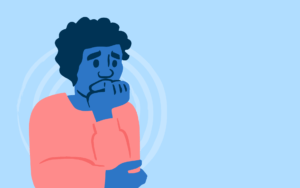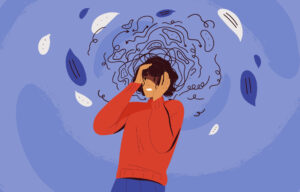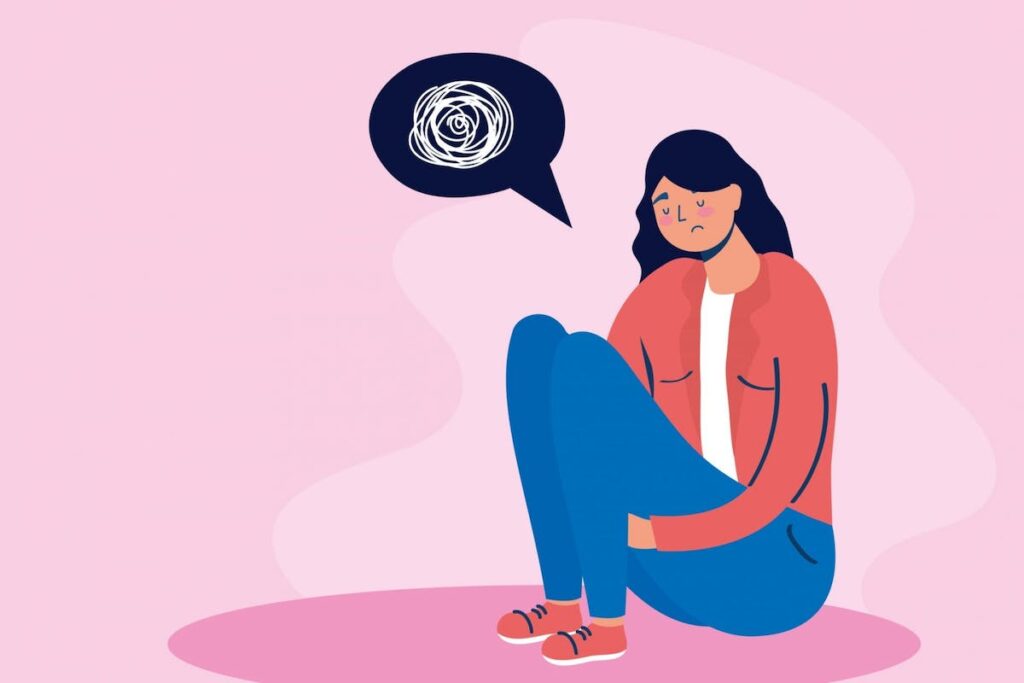Anticipatory anxiety is an interesting condition that can affect anyone, at any stage of life. It’s characterized by a heightened sense of anxiety and unease before something happens, whether it’s an event you’re looking forward to or not. OCD is another condition that can befall anyone at any time in their life. It involves repeated thoughts and behaviors that are harmful to your well-being. In this blog post, we will explore how anticipatory anxiety and OCD are related and how you can treat them. We will also provide some tips on how to deal with these conditions in the meantime.
Contents
What Is Anticipatory Anxiety?

Anticipatory anxiety is an unpleasant feeling of uneasiness, fear, and dread that can occur in anticipation of something. This type of anxiety may cause physical symptoms such as nausea, sweating, and a racing heart. It can also manifest itself as negative thoughts or worries about the future.
This form of anxiety often prevents people from engaging in activities or attending events they would otherwise find enjoyable. It can be a difficult condition to manage because it is often linked to events or situations that cannot be predicted or avoided.
Anticipatory anxiety may be caused by many things, including the fear of the unknown, past negative experiences with similar activities, worrying about what might happen in the future, and feeling overwhelmed.
How Does Anticipatory Anxiety Lead To OCD?
There is evidence to suggest that anticipatory anxiety can lead to OCD. People with OCD often have a heightened fear of things that are not necessarily dangerous, but might cause them distress in the future. For example, someone with OCD may have a fear of going to the dentist because they imagine all the possible dental anxieties that could arise in the future (such as pain, anxiety during procedures, etc.).
It has been theorized that people with OCD are more likely to develop anticipatory anxiety because it makes them feel uncomfortable and stressed. Anticipatory anxiety also appears to increase the likelihood of obsessional thoughts and other symptoms characteristic of OCD.
Another research suggests that anticipatory anxiety is a factor in maintaining OCD, as it increases the likelihood that someone will engage in compulsive behaviors. People with OCD often feel like they “have to” engage in these behaviors to prevent something bad from happening. For example, someone who has a fear of contamination may feel compelled to wash their hands repeatedly in anticipation of the possibility of coming in contact with something they deem “dirty.”
Some research also suggests that anticipatory anxiety may lead to OCD because it creates a “vicious cycle” of fear and distress. People who anticipate potential threats become more aware of the signs and symptoms associated with their OCD, which then further intensifies their anticipatory anxiety.
Causes of Anticipatory Anxiety and OCD

There are many reasons why people might experience anticipatory anxiety or OCD. It can be caused by a range of personal and environmental factors, but the most common cause is stress. When we’re under pressure, our body reacts in ways that can exacerbate anxiety or OCD symptoms.
Another common cause of anticipatory anxiety is worrying about things that haven’t happened yet. This type of worry is called preoccupation, and it’s one way to develop an anticipatory anxiety disorder. People with this disorder often find themselves constantly worrying about upcoming events or situations, even if they have no reason to believe that they’ll be harmful or uncomfortable.
Some people with anticipatory anxiety also have difficulties regulating their emotions. When they feel anxious, they often become overwhelmed and lose control over their thoughts and feelings. This combination can lead to intense fear and worry about future events, even if there isn’t anything to worry about.
OCD can also be caused by traumatic memories or experiences from the past. Often, these memories cause people to feel afraid or worried about future threats that don’t exist. This type of OCD is referred to as “ruminative obsessionalism” because sufferers tend to spend a lot of time thinking about the same thing over and over again without advancing any kind of resolution.
Symptoms of Anticipatory Anxiety and OCD
There are several symptoms of anticipatory anxiety and OCD. Some people feel like they’re constantly on edge or that they have a million things to do. Others might feel like everything is a threat and that they can’t relax. Some people might feel like they’re always thinking about the worst-case scenario.
Whatever the specific symptoms, all of them stem from one common underlying fear: that something terrible will happen. Some of the signs are:
- Constant worrying: People with anticipatory anxiety and OCD often find themselves worrying about potential outcomes. They may think of worst-case scenarios, even when there is no actual threat.
- Rumination: This involves going over negative thoughts or scenarios repeatedly in one’s mind. It can be hard to stop thinking about the same worries or fears over and over again.
- Avoidance: People with anticipatory anxiety and OCD may avoid activities or situations that they fear could pose a threat. This can also include avoiding people, places, or events.
- Physical symptoms: Anxiety and stress can cause physical symptoms such as headaches, body aches, sweating, nausea, and difficulty breathing.
- Sleep disturbances: People with anticipatory anxiety and OCD may struggle to get enough restful sleep. They might wake up during the night or have difficulty falling asleep in the first place.
Treatment for Anticipatory Anxiety and OCD

There is no one-size-fits-all treatment for anticipatory anxiety and OCD, as the disorder can vary significantly from person to person. However, many forms of therapy are effective in treating these conditions.
Cognitive Behavioral Therapy
One type of therapy used to help people with anticipatory anxiety and OCD is cognitive behavioral therapy (CBT). This type of therapy works to identify unhealthy thought patterns that lead to negative behavior. Through CBT, a person can learn how to change their thinking to reduce anxiety and obsessive-compulsive symptoms.
Exposure and Response Prevention Therapy
This type of therapy is commonly used to help people with anticipatory anxiety and OCD. Exposure and response prevention (ERP) therapy works by gradually exposing a person to their fear or obsession to reduce its power over them. The goal of this type of therapy is to help the person learn how to control their responses and reactions, rather than allowing their fear or obsession to control them.
Medication
In some cases, medication may be prescribed to help manage anticipatory anxiety and OCD symptoms. Common types of medications used include antidepressants, anti-anxiety medications, and antipsychotics. It is important to speak with your doctor before taking any medication, as there can be side effects associated with certain drugs.
Support Groups
Some people may find that connecting with others who have similar experiences can help reduce stress and anxiety. Support groups can provide a safe place for people to express their thoughts and feelings, share stories, and learn from each other. Additionally, support groups can be a source of comfort and understanding for those dealing with anticipatory anxiety or OCD.
Alternative Treatments
Self-Help Strategies
Finally, there are many self-help strategies that a person can practice to manage their anticipatory anxiety and OCD symptoms. These include mindfulness techniques, relaxation exercises, exercise, and physical activity, avoiding certain triggers or situations that make the symptoms worse and seeking out social support from friends and family. Additionally, it is beneficial to learn more about the disorder, as this can help a person better understand their symptoms and find healthier ways to cope.
Ultimately, individuals with anticipatory anxiety and OCD need to remember that they have the power to manage their condition. With the right combination of therapy, medication, and self-help strategies, a person can gradually work to reduce their symptoms and lead a more fulfilling life.
Conclusion
The link between anticipatory anxiety and OCD is clear, but the how and why of it are still unknown. What we do know is that these two conditions can be incredibly debilitating, especially when left untreated. If you or someone you know suffers from anticipatory anxiety or OCD, please seek out professional help as soon as possible. It may take a few different therapies to find the one that works best for them, but with treatment on both sides, there is no doubt that a brighter future awaits.
For more information and guidance, please contact MantraCare. OCD is a mental health disorder characterized by obsessions and compulsions. If you have any queries regarding Online OCD Counseling experienced therapists at MantraCare can help: Book a trial OCD therapy session.


